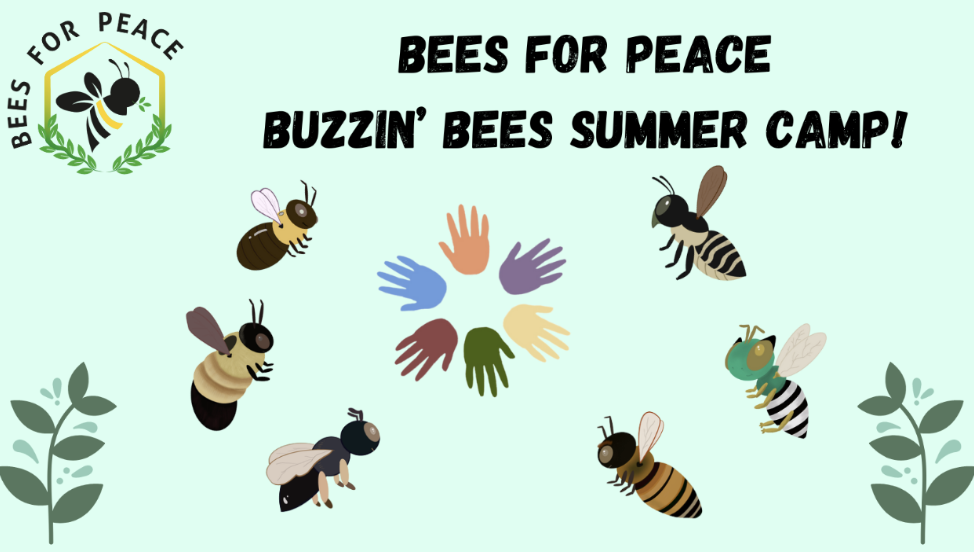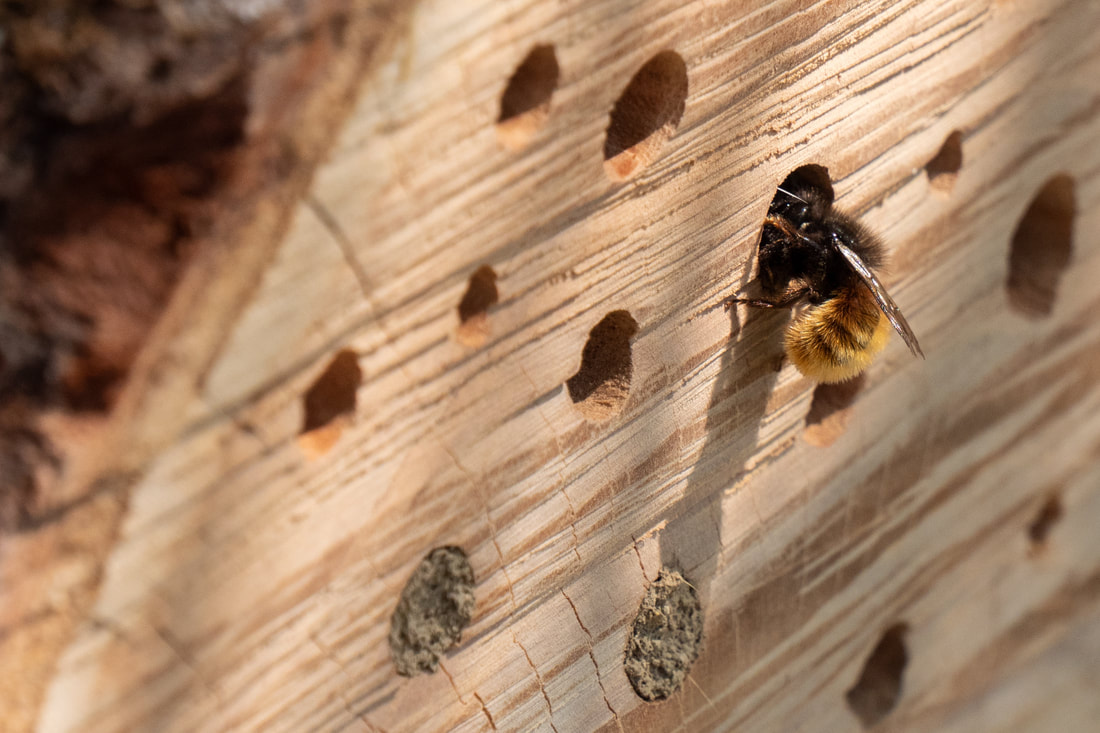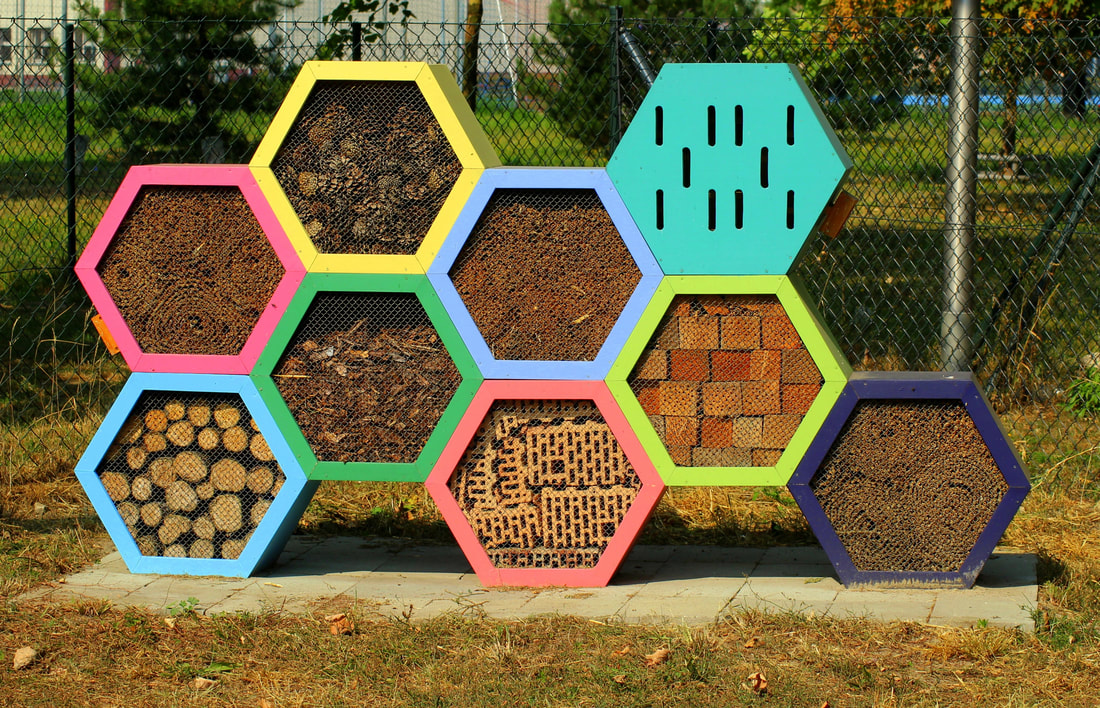Why should anyone care about bees?
Bee extinction means less food – for us, for an expanding global human population, and for many other animals.
|
Imagine that, for breakfast, you enjoy eating yogurt topped with berries and almonds, with a spoonful of honey stirred in. Honey is a product of bees. Berries and almonds are fruit that result from bees carrying fertilizing pollen from flower to flower in their quest for food. Yogurt comes from dairy cows – their breakfast is alfalfa, which is also pollinated by bees. Now multiply your breakfast by 7 billion people. Then erase this breakfast from the planet. Protecting bees is intrinsically connected to our own well-being and that of the planet.
|
What’s new at Bees for Peace in 2023
Bees for Peace will be offering two 5-day Buzzin’ Bees Summer Camp curricula. Through our easy-to-follow instructional guides and kits, you will be able to teach your community’s kids about native bees and gardens and how they relate to and support our world! These camps offer lots of fun activities to help enhance the children’s learning experience – art, song, storytelling, science, DIY environmentally-friendly products, games and contact with nature. These 5-day camps (one for 5-8 year-olds, the other for 9-11 year-olds) will help build community among camp participants, strengthen their connection to nature and nurture in them values such as teamwork, generosity, wonder towards the natural world and appreciation of differences. By the end of the camp, the children will have developed a sense of amazement for and gain knowledge about the hidden community that we live with: pollinators. They will also go home with clear instructions for how to plant their own native plant garden in the fall and the enthusiasm to make it real!
Wanting a summer camp that offers children Biblical teaching as well? We got ya covered! Bees for Peace is pleased to announce that, in collaboration with the United Church of Canada, we will be producing a Bible Camp for Creation curriculum and kit for churches. This curriculum will be similar to the other summer camp, but will offer a special focus on the ecological aspects of Christian teachings and traditions. We believe all of our faiths have wisdom on living wisely on the Earth and are therefore honoured to help bring this more to awareness. If you are interested in this curriculum – or if you want to discuss the curriculum development for another faith tradition – then contact us at the email below.
If interested, please send an email to: [email protected].
Wanting a summer camp that offers children Biblical teaching as well? We got ya covered! Bees for Peace is pleased to announce that, in collaboration with the United Church of Canada, we will be producing a Bible Camp for Creation curriculum and kit for churches. This curriculum will be similar to the other summer camp, but will offer a special focus on the ecological aspects of Christian teachings and traditions. We believe all of our faiths have wisdom on living wisely on the Earth and are therefore honoured to help bring this more to awareness. If you are interested in this curriculum – or if you want to discuss the curriculum development for another faith tradition – then contact us at the email below.
If interested, please send an email to: [email protected].
Why should communities of faith embrace bee protection?
The world’s religions contain texts and traditions that teach us to cherish this Earth, which is our collective home. Treasuring this planet and its incredible diversity of life is a way to express our wonder at and gratitude for this gift from our Divine Source. Moreover, food and flowers are essential to our religious practices, whether it be flowers on the altar of Christian churches; the iftar meal during Ramadan; the communal kitchen, langar, of the Sikhs; the apples and honey eaten during Rosh Hashanah; flowers used in Hindu rituals; and more. Finally, faiths guide us to embrace and express values, such as moderation, selflessness, justice, thankfulness and generosity. These values form the foundation of community – with members of our own faith, with the larger human community and with the web of life that supports and nourishes us.
How can faith communities protect bees?
|
Here are some concrete ways to help bees!
|









